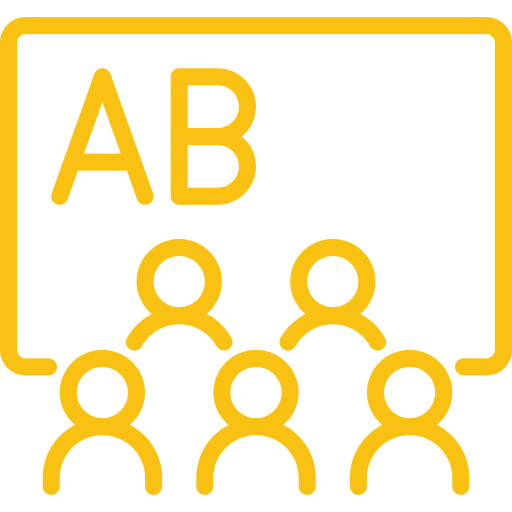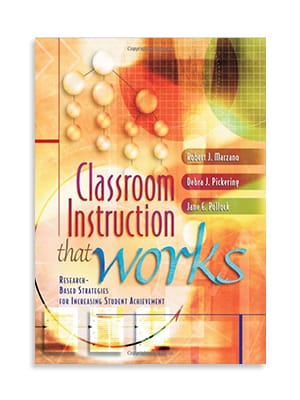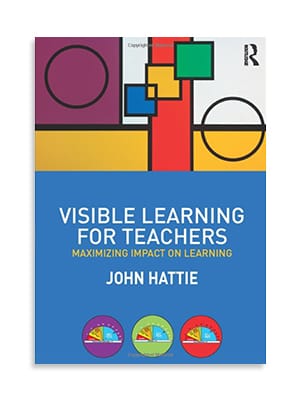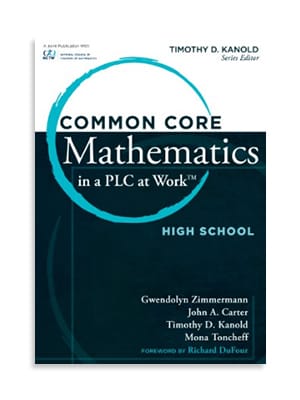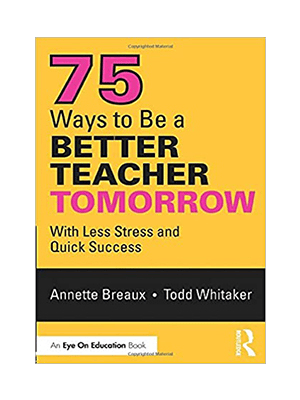By Shawn Bean
Written March 17, 2023
57 GPT Prompts for Teachers
Schools across the country are scrambling to block students from using Chat GPT, afraid that students’ writing skills will completely disappear as they rely on the dreaded AI bot to do their work.
If you couldn’t tell from the title, we’re not here to discuss that.
Instead, let’s find a way to use ChatGPT to make teachers’ lives easier. This artificial intelligence (AI) tool can save you time, something in short supply these days.
A few of the things this powerful tool can do for you, that will be covered in this article, include:
- Creating interactive activities
- Lesson planning
- Generating assessment materials
- Providing feedback for students
- Communicating with parents
- Answering student questions
- Offering language support
Writing prompts primer
Many teachers aren’t used to using the large language model that is Chat GPT.
As such, they aren’t sure what the starting point should be.
When you use Google to search for content, you often start with general terms. That’s not a good use of AI.
Typically, the right way to use an AI chatbot like this is to use very specific prompts. Including things like the age of the audience, the purpose, and the style of writing, will give you better results. Then you can continue to ask for more examples or refine your good prompt into a great one.
Just remember that any AI tool is really not intelligent, but it’s great at helping you refine and develop a specific task on a specific topic. Original ideas, to be honest, aren’t their strong suit.
Creating interactive activities
Creating games: “Develop a game for 1st graders that reinforces the grammar rules we’ve been studying in class.”
Creating chatbots to answer questions: “Create a chatbot that answers common questions students at the 10th grade level might have about climate change.”
Generate a simulation: “Design a simulation, including all the materials needed, to teach 6th graders how accretion works.”
Writing prompts generator: “Develop a writing prompt generator for students in 9th grade on new play ideas in the style of Shakespeare.”
Create role playing activities: “Create a role-playing activity for 4th graders that requires students to use vocabulary terms from a geography unit on US capitals.”
Decision-making activity: “Build a decision-making simulation that puts 7th grade students in the role of George Washington during the Revolutionary War.”
Interactive stories: “Create a choose-your-own-adventure story on the French Revolution from the perspective of a peasant for a 7th grade student.”
Virtual field trips: “Create a virtual field trip to the beaches of Normandy for 5th grade students.”
Lesson planning
Planning essential questions: “Provide 5 examples of an essential question for a unit on supply and demand for 12 graders.”
Unit objectives: “Develop 10 unit objectives for a US History class based on the textbook An American Citizen, from chapter 4.”
Unit outline: “Create a unit outline for teaching basketball to a 4th grade PE class, including at least 1 challenging task for all students involving 2 basketballs.”
Entire lesson plans: “Create a lesson plan for a sophomore English class that involves creative writing, including an introduction, activity, and closure activity.”
Instructions: “Provide step-by-step directions for 2nd grade students to build a paper airplane for maximum distance.”
Class discussions: “Provide class discussion questions for 8th grade students that involve common misconceptions about the role of credit cards.”
Materials: “Find 5 examples of articles from the New York Times that can be used to write an informative essay on how education has changed over the last 20 years.”
Study guides: “Build a study guide for 8th grade students on the amendments to the US Constitution.”
Rubrics: “Develop a rubric to assess critical thinking skills for 11th graders responding to a primary source.”
Revision: “Revise this reading to be more concise and to the point, no more than 2 paragraphs.” (Then post the longer reading).
Performance tasks: “Create a performance task related to public speaking for a 9th grade communication skills assessment.”
Classroom management: “Develop a classroom game that encourages students who are disengaged to start turning in assignments.”
Generating assessment materials
Multiple choice questions: “Write 10 multiple choice questions based on the movie Supersize Me for 10th graders.”
Open-ended questions: “Generate some open-ended questions about the impact of slavery on the southern economy for college level students.”
Specific book questions: “Develop 10 questions about nonsensical responses for 3rd graders based on the Dr. Seuss book The Cat in the Hat.”
Practice problems: “Develop 20 practice problems for students in Algebra to better understand linear equations.”
Short answer questions: “Generate a short answer question about the causes of the Civil War for an 11th grade history assessment.”
Matching questions: “Generate 5 matching questions about literary terms for a 9th grade English assessment.”
Find the mistakes: “Write a 500 word essay to be used in middle school English classrooms, including 2 examples of inaccurate content and 5 grammatical errors.”
Projects: “Create a list of potential project tasks related to the Renaissance for a 9th grade World History class.”
Data analysis: “Build a data analysis task related to heart rates in humans for a 6th grade Health class.”
Presentations: “Create an oral presentation task for students in 5th grade giving a speech for the first time.”
Differentiating for students: “Modify the reading 7 Ways to Save More Money from John Smith to a reading level of a 4th grader.”
Change the style of a piece of writing: “Modify the blog posts from Midwest Teachers Institute on Artificial Intelligence to the writing style of Stephen King.”
Feedback
Self-reflection: “Ask students to assess their own understanding of prokaryotic cells.”
Peer feedback: “Ask students to provide various ways to improve the writing on a sample essay from a fellow student.”
Goal-setting: “Set a SMART goal for the best way to be successful this year in school.”
Student feedback on the teacher: “Ask students to provide critical feedback to their teacher for the last unit, specifically highlighting what worked best and what didn’t work well.”
Likert Scale prompt: “Ask students to rate their field trip experience on a 5 point Likert Scale.”
Grading: “Examine the following paragraphs and determine if it’s their own work or done by an artificial intelligence tool.” (then enter the actual paragraphs).
Communicating with parents
Parent-teacher conference: “What’s a good way to ask a parent to attend a conference for a student who refuses to do their work?”
Newsletter: “Create a newsletter for English teachers to send to parents centered around the book Little Women by Louisa May Alcott, including themes they can discuss with their kids.”
IEP meeting feedback: “Provide 3 examples of feedback I can give for an IEP meeting on a student who is currently excelling in my classroom.”
Phone calls: “What are the most important things I should discuss with a parent of a child who isn’t doing any work, from the perspective of a math teacher.”
Class blog: “Based on the book Chemistry 101, create a class blog to share with parents covering the important topics covered in each chapter.”
Emails: “Create an email to send to parents about the upcoming softball season.”
Email template: “Create an email template to update parents on student grades. Create a separate template for A, B, C, D, and F students. Make it encouraging.”
Answering student questions
The need to know more: “Provide 10 reasons renting an apartment is a better option than buying a house.”
Socratic method: “Use the Socratic Method to help a student develop content for their writing assignments.”
Modeling thinking: “Show the model thinking process for breaking down a literary work for 6th grade students.”
Clarification: “How can I explain Economic Policy to a student who is struggling to understand it. Simplify it so a 4th grader could understand it.”
Visual aid: “What are some ideas for visual aids for teaching the Middle Ages to 9th graders?”
Offering language support
Translation: “Translate the following reading to Spanish.” (Then enter the reading).
Context clues: “How can we use context clues to better understand the meaning of this word?”
Synonyms: “What synonyms can help a student better understand this word?”
Vocabulary assistance: “What are some new ways I can introduce vocabulary words to my students to help them better comprehend their meaning?”
Grammar: “Provide some examples of grammar activities to help students overcome common errors.”
Conversation practice: “Provide conversation practice opportunities for students who need language support.”
Cultural support: “What cultural differences for students from Brazil may affect language learning and communication?”
Final thoughts
The use of ChatGPT won’t ever completely change the way you teach, but it can be used to help you in a variety of ways. In a matter of seconds you can have a list of the best responses for you to choose from to help you with all the things you have to do as a teacher.
It is important to remember that although at first it may seem like everything is human-like text, you’ll still need to put your own personal touch on things.
New technologies aren’t just a cool new tech tool toy, they are a way to improve the quality of your teaching by simplifying complex topics and taking away the parts of your job that take up too much time.
The vast majority of ideas created may not be perfect, in fact you may find incorrect information at times. The only way to ensure that you are providing a correct answer or content is to double check what you are using. You’re still a necessary part of the equation teachers!
If you are looking for some good tech tools to add to your own classrooms, check out this blog post 14 Awesome AI Tools for Teachers, written by yours truly.
And if you’re looking to simplify your financial life and need to take some more classes or get your master’s degree, check us out at Midwest Teachers Institute. Save more, learn more, make more, with MTI.
